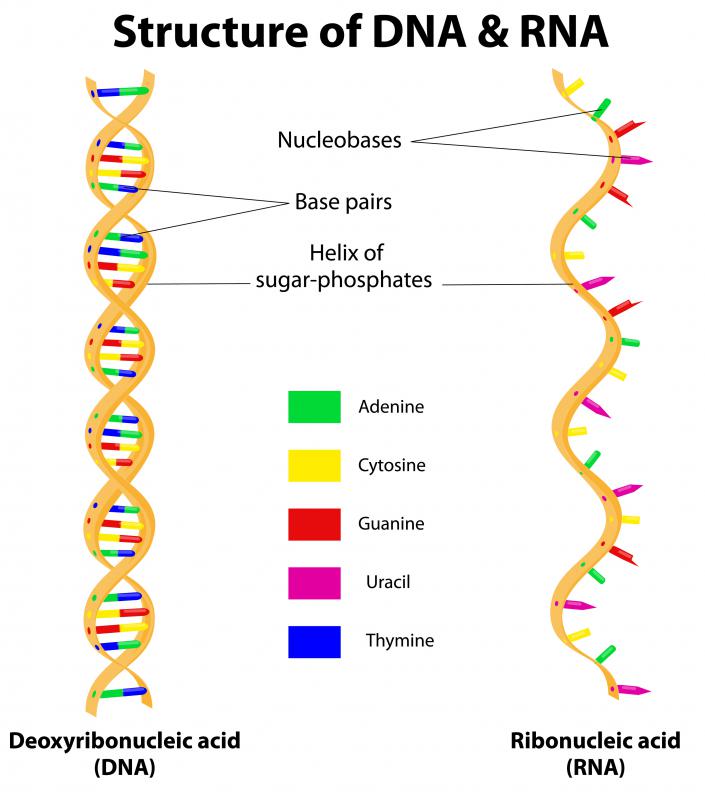At WiseGEEK, we're committed to delivering accurate, trustworthy information. Our expert-authored content is rigorously fact-checked and sourced from credible authorities. Discover how we uphold the highest standards in providing you with reliable knowledge.
What is Genotoxicity?
Genotoxicity is a property possessed by some substances that makes them harmful to the genetic information contained in organisms. While there are many different factors that can affect DNA, RNA, and other genetic materials, the property of genotoxicity only applies to those substances that actually cause harm to the genetic information. A substance that has the property of genotoxicity is known as a genotoxin. There are three primary effects that genotoxins can have on organisms by affecting their genetic information. Genotoxins can be carcinogens, or cancer-causing agents, mutagens, or mutation-causing agents, or teratogens, birth defect-causing agents.
Some genotoxins, such as those that affect cancer-suppressing genes, are considered carcinogenic, as they can lead to cancer. Cancer is the uncontrolled growth of cells within the body, and often has genetic causes. Substances with genotoxicity can cause mutations in cells that cause them to divide and grow uncontrollably. They can also have damaging effects on various proteins and other substances that normally prevent such uncontrolled cell growth. When these substances do not act as they should, some cells are much more likely to mutate and divide uncontrollably.

In most cases, genotoxicity leads to mutations in various cells and other bodily systems. Mutations can lead to a host of other problems, from cancer to a wide variety of different diseases. Sometimes, mutations caused by genetics are completely harmless and can go completely unnoticed. In many other cases, though, the effects of genotoxins can be deadly. Mutations can come in many different forms; genetic information can be duplicated, deleted, or inserted.
Some of these mutations can be teratogenic, meaning that they can cause birth defects. Often, this can occur because of some condition or substance in the parent affects the offspring. Either parent can be responsible, as both parents contribute genetic information to the child. If a genotoxin affects the genetic information in a parent's sex cells (eggs or sperm), a defect can appear in the genetic information of the offspring.
Though there are many mechanisms by which genotoxicity can affect genetic information, one of the most common mechanisms involves the formation of strong chemical bonds between the genotoxins and the molecules that compose genetic information, such as DNA and RNA. In some cases, these bonds do not strongly affect the existing genetic data. They do, however, prevent the proper replication of the genetic information. Such changes in the process of genetic replication can cause myriad problems, as genes affect nearly every aspect of living organisms.
AS FEATURED ON:
AS FEATURED ON:











Discussion Comments
@cherrycoke84 - There are several tests, and I think some are included in the basic prenatal screenings that your doctor can do on the baby.
There's also tests conducted by the Food & Drug Administration (FDA) on new drugs before they are released to market, in order to determine whether they might cause harm to a developing baby.
Are there tests which can determine if genotoxicity is present or affecting the baby?
How can genotoxicity in the father affect a developing embryo?
Post your comments